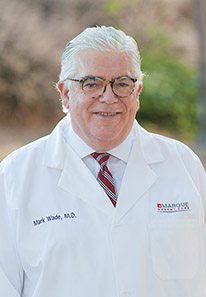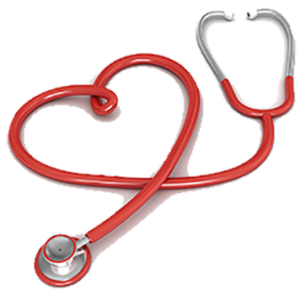
If we have any suspicion that we might be suffering an acute cardiac event, including, but not limited to an acute myocardial infarction (“heart attack”), it’s essential that we call 911 immediately so that trained
Here is a brief summary of how I broadly classify potential heart symptoms and some ideas about how to interpret them. I think in terms of four major categories of symptoms:
- Chest Pain
- Shortness of Breath
- Palpitations
- Other
CHEST PAIN
Cardiologists sometimes use this term because it’s quick and easy to say, but I prefer to use the term “chest discomfort” which is a much broader and more accurate one. Chest discomfort can be caused in a variety of ways which may be, but are sometimes not, related to the heart. Cardiac chest discomfort (usually caused by deficient oxygen delivery to heart muscle resulting usually, but not always, from blockage of a coronary artery) is classically described as a pressure or heaviness in the mid chest. This can be of gradual onset (predictably occurring as the result of some form of exertion), of a more progressive nature (sometimes occurring at rest or in a worsening or prolonged manner if coronary blockages are in the process of worsening), or sudden and prolonged (in the case of acute closure of a coronary artery.) We must remember that cardiac chest discomfort can radiate into the neck, jaw, either arm or hand (more commonly the left side), the back, or the abdomen, and sometimes can be felt only in these other regions without being perceived in the chest at all. Another less common, but deadly, cause of cardiovascular chest discomfort is the sudden tearing chest and back pain caused by a dissection (tear) of the aorta. However, cardiovascular chest discomfort can also be felt in other ways. It can feel exactly like “indigestion” (in fact I have personally known patients who died from acute myocardial infarction after insisting that they were only experiencing acid reflux and therefore refusing cardiac evaluation, to their own detriment). Heart symptoms can also feel like chest wall (muscle, rib, or sternal) pain. If the discomfort is relieved promptly and completely by antacids, or clearly caused by musculoskeletal movement or palpation, those mitigating factors would point toward alternative causes of discomfort. The aforementioned are among the questions that a physician is going to ask. You can never be too safe, and one must always consider the possibility of a cardiac cause of any chest discomfort.
SHORTNESS OF BREATH
This is often the result of a lung condition. Of course, shortness of breath can accompany a respiratory infection (bronchitis or pneumonia), or can result from acute or chronic airway spasm (asthma or Chronic Obstructive Pulmonary Disease). However, it can also result from fluid congestion in the lungs (Congestive Heart Failure) due to a chronic or acute decrease in the heart’s ability to pump blood forward. Congestive Heart Failure (CHF) is often worse when lying down, and may be (but is often not) associated with swelling in the legs or abdomen. While wheezing may usually point toward asthma or COPD, it can also be present in acute fluid congestion from CHF. So, it’s important to consider the heart if we are experiencing shortness of breath.
PALPITATIONS
This term means the perception of an abnormal heart beat. It may be normal to briefly feel our heart pounding in our chest after sudden physical exertion or a sudden fright. However, we generally don’t feel our heart beating in our chest in the absence of such provocation. Palpitations may be in the form of a perceived rapid heartbeat or a perceived irregular heart rhythm. Rapid heartbeat at rest may be due to some metabolic conditions (such as hyperthyroidism or anemia) but can be due to a primarily abnormal heart rhythm. Irregular heart rhythms may or may not be perceived by a given person, and may or may not be life-threatening or health-threatening. Also we must remember that sometimes a rapid or irregular heartbeat may be the heart’s distressed response to the fact that it is at times beating abnormally slowly. The evaluation and treatment of palpitations can sometimes be complex and is always deserving of evaluation by a physician. Whether that evaluation can be in an outpatient setting or warrants calling for emergency help depends upon the severity, context, and presence of accompanying symptoms such as chest discomfort, shortness of breath, loss of consciousness, or lightheadedness. If there is any question in our mind, we should call 911.
OTHER
This category is comprised of several other types of symptoms, including lightheadedness, loss of consciousness, nausea, and even simple fatigue. All of these symptoms can have many other causes too, but the heart, even in the absence of any other more specific cardiac symptoms, is on the list of possibilities. Depending on the context, a cardiac cause must be considered.
As we can see, acute and chronic heart disease can manifest itself by a wide range of symptoms which can sometimes be difficult to sort out. The stakes are too high to ignore suspicious symptoms. We should always seek medical attention for any symptoms we are concerned about, and we should never hesitate to activate the emergency medical system if our symptoms are severe, occur suddenly, or are rapidly progressive.
The information provided is for general interest only and should not be misconstrued as a diagnosis, prognosis or treatment recommendation. This information does not in any way constitute the practice of medicine, or any other health care profession. Readers are directed to consult their health care provider regarding their specific health situation. Marque Medical is not liable for any action taken by a reader based upon this information.

Favorite Platform

New Content



